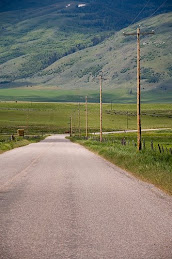I just took an interesting journey through medieval times, beginning with the period we commonly refer to as the dark ages and on through the centuries of European history up through the Renaissance and the Reformation and Ferdinand Magellan's incredible journey to circumnavigate the world. It was not a pretty place to live. Over and over I felt grateful that our turn on earth came in an age of enlightenment and advancement and Restoration and freedom, although I recognize that many on our planet still live in impoverished circumstances or under totalitarian regimes that echo the bondage of past ages.
My journey was through the pages of a remarkable book that I finished last night entitled
A World Lit Only by Fire: The Medieval Mind and the Renaissance: Portrait of an Age, by William Manchester, a professor of history emeritus at Wesleyan University in Middletown, Connecticut. (The book was published by Bay Back Books / Little, Brown and Company: New York, 1993.) It was a compelling read that kept me engaged through all 296 pages of the text.
An apostate Christianity dominated the landscape throughout all these centuries, and from my perspective it seemed clear that a great apostasy, as the prophets and apostles abundantly foretold in the biblical record (such as in
2 Thessalonians 2:3;
Acts 20:28-31; Galatians 1:6-12;
2 Thessalonians 2:7-8;
1 Timothy 4:1-3;
2 Timothy 3:1-7;
2 Timothy 4:3-4; and
Jude 1:3-4), had indeed occurred. The church that emerged in both eastern and western factions bore little semblance to what the humble Galilean, the Son of God, had introduced among His disciples. The doctrines were changed, the covenants and ordinances were adulterated and then lost, the authority of heaven was clearly withdrawn, and the institution that survived resorted to corruption and force to control the minds and souls of its adherents in satanic and barbaric forms of unrighteous dominion. Falsehoods were proclaimed as truth. Freedom of conscience and expression were suppressed. Spiritual wickedness reigned in high places.
The medieval church was no friend to liberty, justice, or truth. It was no friend of heaven. I am absolutely not making any of this up (nor was William Manchester as he wrote his book). This is the church that burned people at the stake for presuming to make the holy scriptures available to people in their own tongue. This is the institution that banned or excommunicated or killed people for presuming to teach that the world was round rather than flat as the ecclesiastical hierarchy insisted. Magellan's voyage around the world changed that old flat notion, although incredibly the church would not accept that the earth was actually a sphere until after a couple more centuries had passed.
The Reformation, beginning in the early years of the sixteenth century, was a response to all the accumulated evil that masqueraded in the name of religion and was an attempt, as the very name suggests, to reform the church. But the new Protestants, as they quickly came to be called, proved every bit as ruthless and dogmatic and controlling as the old regime had been. The excesses continued. The consciences of men were still abused. The government of heaven was still missing from the earth.
It is small wonder then (and this is now not technically a part of my little book report here but a requisite postscript), that the God of heaven had to start afresh, after carefully preparing a place where freedom of thought and religion were finally available, with a new revelation from the heavens. The nature and character and attributes of God had become so confused and lost, dating from the early centuries of Christianity and canonized in confusing and false creeds that by force of sword became mainstream, orthodox belief, that the Father and the Son chose to appear again to reveal Their true nature and to begin anew the Restoration of the gospel of Jesus Christ with its simple truths and ordinances and covenants and authority.
So, after centuries of apostasy and darkness, the heavens were opened once again on a spring morning in 1820 on the western frontier of the fledgling United States, in a marvelous theophany that verified the actual existence of God and that taught that God the Father and His Son Jesus Christ are actual, distinct, separate personages as the Bible clearly taught before its truths were obscured by the wrangling councils and creeds of later centuries.
Sadly, the philosophies of uninspired men had hijacked traditional Christianity from the simple scriptural truths taught by the Savior and His apostles. Things had gone badly wrong. A mere reformation was insufficient. A complete and total restitution or restoration of divine light and power and authority was necessary to get things back on track and to gather scattered Israel from all corners of the earth and to prepare a people, saints of the Most High God, for the imminent return of the Son of God, who this time will reign in glorious splendor as Lord of lords and King of kings. This coming millennial reign will differ in every respect from what prevailed during the dark and medieval ages portrayed by Professor Manchester in this book.

